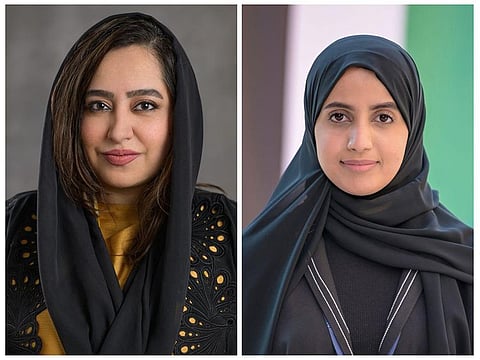UAE: How Emirati women are powering up gender parity in artificial intelligence
Male-dominated tech sector should value women’s contributions equally, the researchers say

Abu Dhabi: Emirati women are increasingly at the forefront of efforts to deploy the power of artificial intelligence (AI) in improving our lives, be it for customising public services or fighting climate change.
But, globally, are women’s contributions in this emerging field being recognised equally as their male counterparts?
Gulf News spoke with three Emirati women from Mohamed bin Zayed University of Artificial Intelligence in Abu Dhabi (MBZUAI) about their projects’ impact on the AI sector and gender parity.
“Participating in MEP greatly enriched my understanding of data-driven decision-making in philanthropy. Through machine learning algorithms, we are able to analyse donor preferences and tailor engagement strategies, resulting in higher donor retention rates and increased contributions.
“This application of AI not only advances our philanthropic initiatives but also demonstrates the potential for technology to drive positive social impact. The cross-industry exchange of ideas [during MEP] provided a unique opportunity to learn from different strategies and practices, fostering creativity and adaptability.”
Addressing ‘unconscious biases’
Dr Ketait has a clear overview of the challenges that women face in sectors that are traditionally male-dominated.
“Being a woman in the tech sector has been both challenging and rewarding,” she said.
“I believe there is a need for continued efforts to create inclusive environments, promote equal opportunities for women in leadership roles, and address unconscious biases. Employers can play a significant role by implementing mentorship programmes, fostering a culture of respect, and actively promoting gender equality.
"Ultimately, I hope to see a tech sector where women’s contributions are valued equally and where diverse perspectives drive innovation and growth.”
Farha Albreiki, who graduated with a Master of Science in Machine Learning from MBZUAI in June, is keen to be part of the solution and is a member of TRANSCO Women Working Group (TWWG), which is driven by TAQA Women’s Council.
“My learning at MBZUAI paved the way to involve myself in projects that are related to AI and data analysis for forecasting and prediction purposes,” she said.
“The degree and the education I received distinguished me from my colleagues with the same background. My skills helped me to ask the right questions, which will improve the integration of the solution being built and ensure that it is what we are seeking as a long-term AI solution.”
Another Emirati woman at MBZUAI is Nouf Alshamsi, who is studying for a master’s in computer vision and is fascinated by the transformative possibilities that emerge at the “crossroads of different disciplines”.
“I was drawn to this field because it could revolutionise our interactions with technology and our environment,” she said.
Alshamsi, describing her experience at MBZUAI, added: “One of the highlights of my experience is gaining the ability to approach AI challenges from a holistic perspective, including considering how AI can be integrated across different domains.








